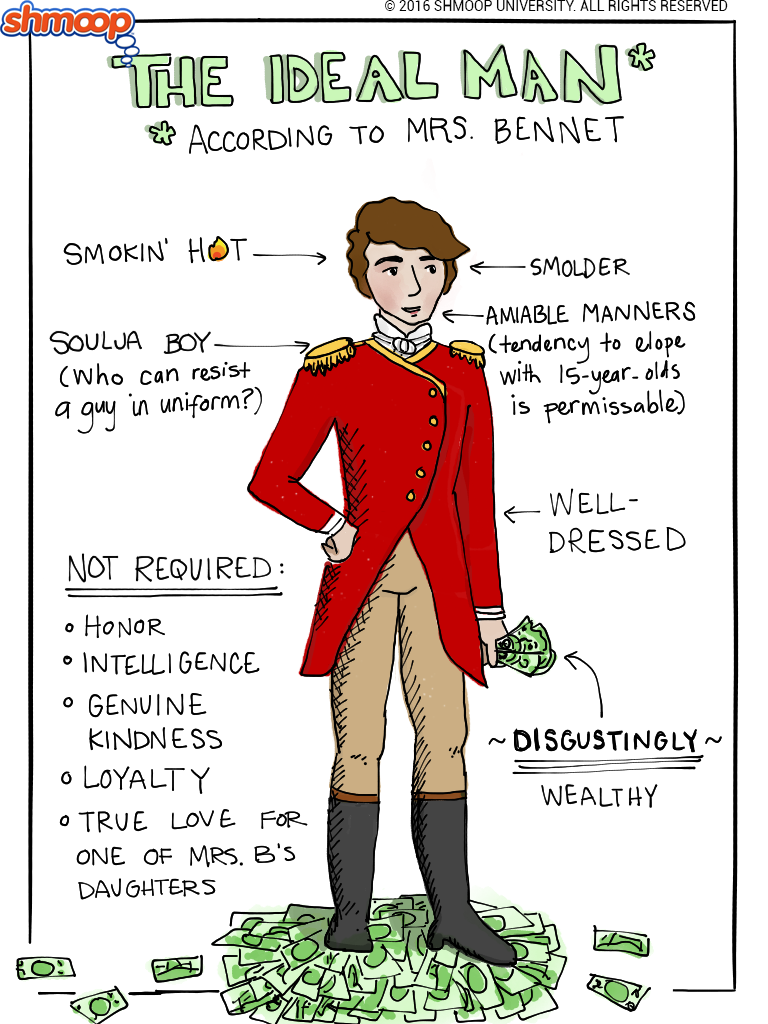Character Analysis
You think your mother's embarrassing? She's got nothing on Mrs. Bennet. Mrs. Bennet is a small-minded, vulgar woman with no tact—and we mean none.
Mrs. Bennet is mainly comic relief, and is a pretty savage caricature. She has no self-awareness, she's kind of dumb, she's all surface and no substance, and she's fixated on getting her daughters married without any concern about their future lives. (Elizabeth and Mr. Collins? That would have been a recipe for misery!)
On the other hand, though … what else is she supposed to be like?

(Click the infographic to download.)
Single Ladies
Think about it. She got married before she was ready to a man who doesn't respect or love her, and who actually spends most of his time amusing himself by making fun of her: "her ignorance and folly had contributed to his amuseument" (42.1). Now she has to run a fairly complex household despite the fact that she's a woman of "mean understanding, little information, and uncertain temper" (1.34). She has a totally unhelpful, passive husband, who has failed to put any money aside as savings for his daughters, even though he knows full well that he can't leave the house or estate to them. At the same time, she has five daughters who are too high-status to have jobs but will be too poor to be able to support themselves.
No wonder that all she thinks about is when the next eligible bachelor is coming from.
Let's look at some of her strategies to get Jane and Bingley together: She sends Jane over the Netherfield on horseback instead in a carriage, "because it seems likely to rain; and then you must stay all night" (7.23). She constantly invites Bingley to dinner and even offers her husband's birds for him to shoot (53.53). And then she contrives to get Jane and Bingley alone together, even though the two oldest girls are practically dying of embarrassment.
The result? It totally works. Jane and Bingley are both so passive and good-natured that, without all scheming, we're honestly not sure if it ever would have happened. Say what you will about Mrs. Bennet (and Austen says a lot), she does seem to understand how guys work. Note the little throwaway line where we learn that she "always kept a very good table" (53.60), meaning that she serves good food. And we all know the way to a man's heart.
So, here's our final question: did Austen sympathize with Mrs. Bennet, too? Or is there no hope for this poor lady?